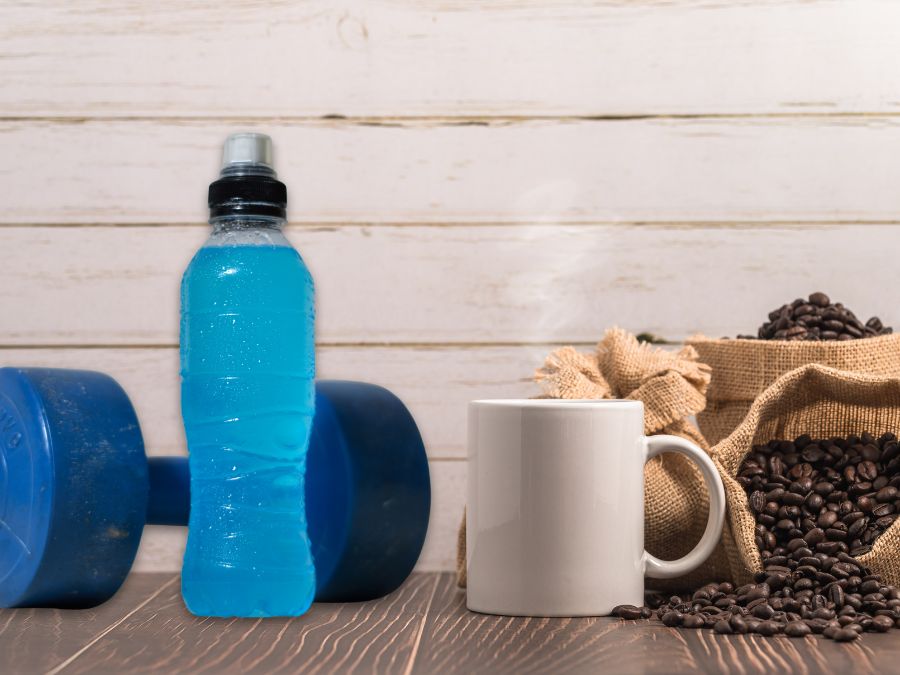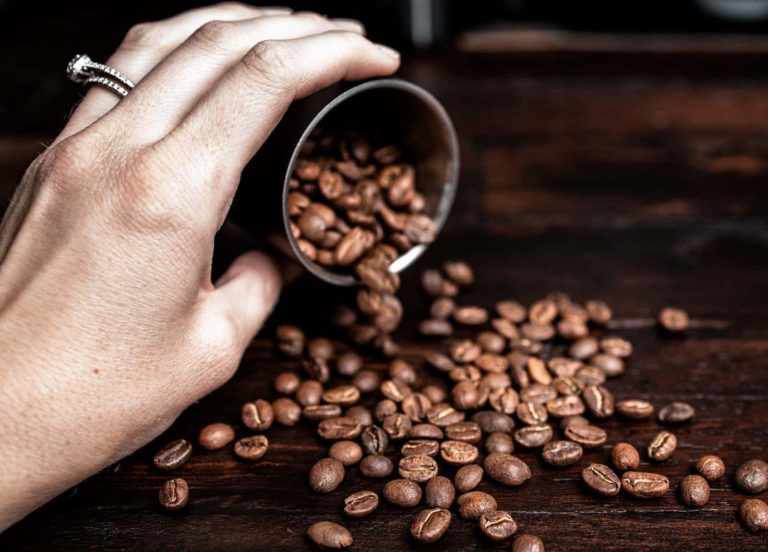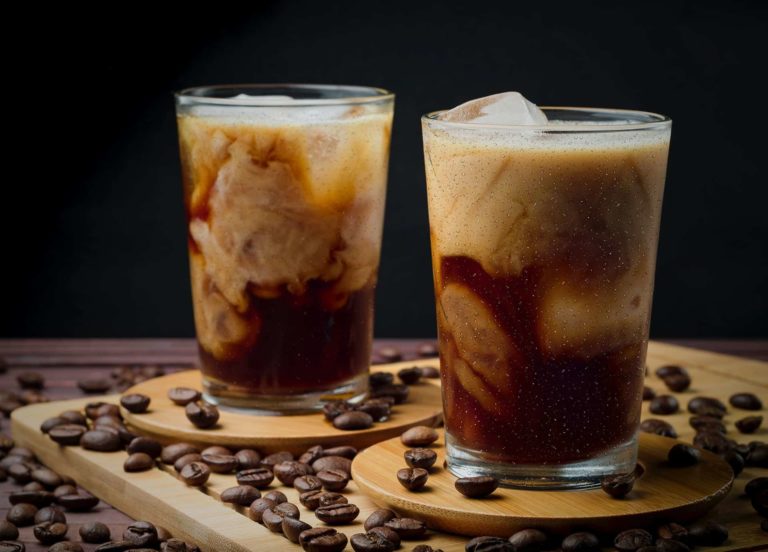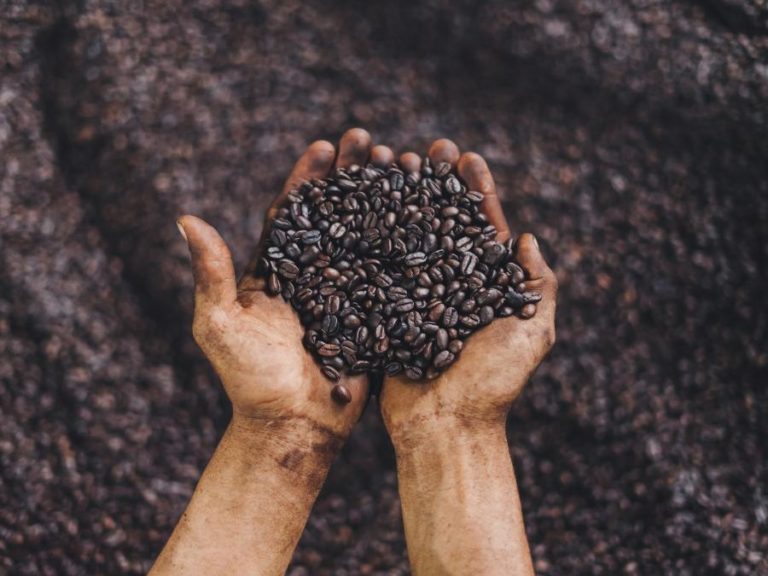Jitters or Jolts: The Battle Between Coffee and Energy Drinks
The Buzz Battle: Coffee vs Energy Drinks
Caffeine has become a staple of modern society. It’s no secret that coffee and energy drinks are two of the most popular ways to get that much-needed boost of caffeine.
But which one is better? In this article, we will explore the benefits and drawbacks of both coffee and energy drinks, as well as their effects on the body.
The Basics
First, let’s lay out the basics. Coffee is made from roasted beans, typically from countries such as Colombia or Brazil.
It can be brewed in a variety of ways, including drip coffee makers, French presses, and espresso machines. On the other hand, energy drinks are canned beverages that come in a variety of flavors and contain not only caffeine but also other ingredients such as taurine and guarana.
Both coffee and energy drinks provide an instant boost of energy due to their high caffeine content. However, there are several differences between the two when it comes to their effect on the body.
Thesis Statement
While both coffee and energy drinks provide a boost of caffeine, they differ in their effects on the body and overall health benefits. In this article, we will delve deeper into these differences to help you determine which beverage may be better for your individual needs. So buckle up – it’s time for a showdown between coffee and energy drinks!

History and Origin of Coffee
Coffee has a long and fascinating history dating back to the 9th century in Ethiopia. According to legend, a goat herder named Kaldi noticed that his goats became extremely energetic after consuming berries from a certain tree. After trying the berries himself, he too experienced an energy boost.
The news eventually spread to nearby monks who began using the berries to stay awake during long prayer sessions. Coffee quickly became popular in the Middle East and North Africa, where it was first roasted and then boiled into a beverage.
From there, it spread throughout Europe and eventually reached the Americas during colonization. Today, coffee is one of the most widely consumed beverages in the world.
Types of Coffee Beans and Brewing Methods
There are two main types of coffee beans: arabica and robusta. Arabica beans are typically considered higher quality as they have a smoother taste with less bitterness than robusta beans. Robusta beans contain more caffeine than arabica beans but can taste harsher.
There are numerous ways to brew coffee including drip brewing, French press, pour-over, espresso, and more. Each method results in a different taste profile as well as different levels of caffeine concentration.
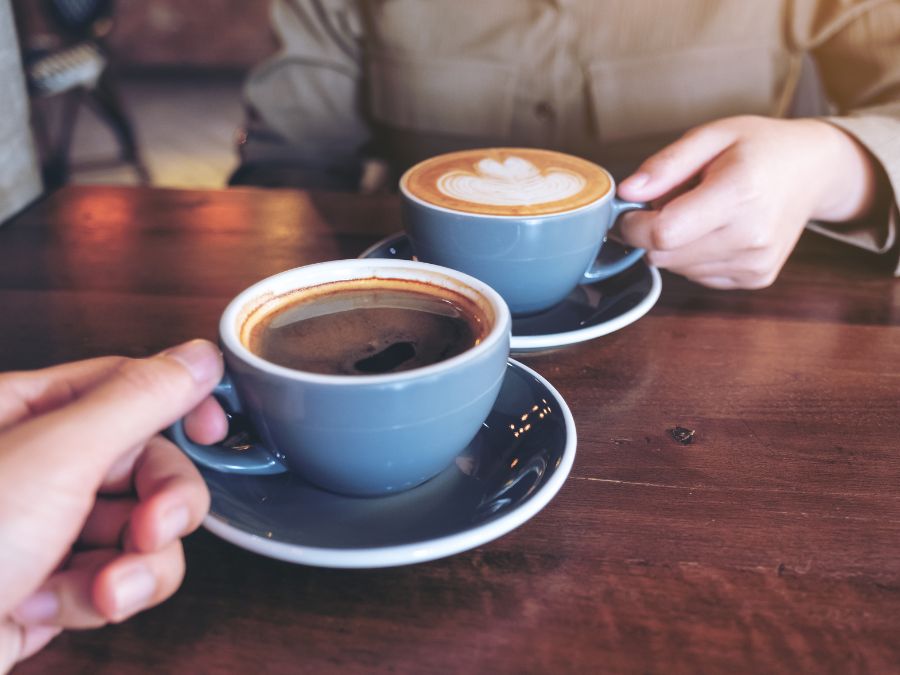
Effects of Caffeine on the Body
Caffeine is a stimulant that affects the central nervous system by blocking adenosine receptors which can increase alertness, improve mood, and enhance cognitive performance. However, too much caffeine can lead to negative side effects such as jitters, anxiety, headaches or insomnia for some people.
The effects of caffeine also depend on individual tolerance levels as well as factors such as age and weight. It is recommended that adults consume no more than 400 milligrams of caffeine per day which equates to about four cups of coffee.
Health Benefits of Drinking Coffee
Studies have found that drinking coffee in moderation can provide a variety of health benefits. For example, coffee has been linked to a lower risk of type 2 diabetes, liver disease, and Parkinson’s disease.
The antioxidants in coffee may also help lower the risk of certain cancers and heart disease. However, it is important to note that adding sugar or creamer to coffee can negate some of these benefits.
It’s worth noting that while coffee has some potential health benefits, it is not a cure-all and should not be relied upon as the sole solution for any health issues. It’s always best to consult with a healthcare professional before making significant changes to your diet or lifestyle habits.
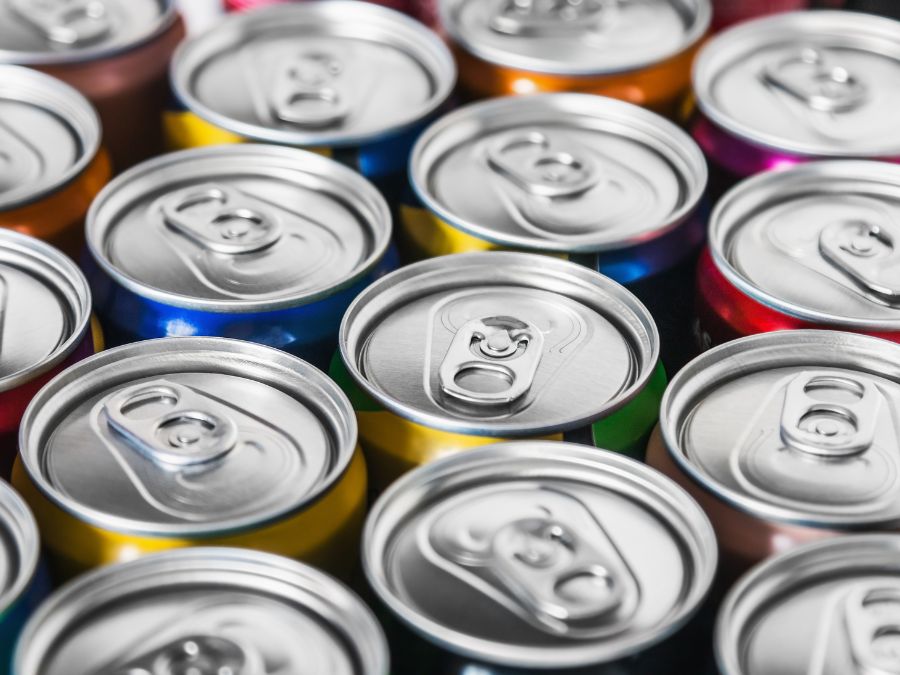
Energy Drinks
History and Origin of Energy Drinks
Energy drinks have become increasingly popular over the past few decades, but their origins can be traced back to the 1960s. The first known energy drink was called “Lipovitan D” and was created in Japan. It contained a blend of taurine, caffeine, and B vitamins, which were believed to provide an energy boost.
In the 1980s, Red Bull was introduced in Austria and quickly gained popularity throughout Europe. It was eventually introduced to the United States in the late 1990s and has since become one of the most popular energy drinks on the market.
Since then, countless other brands have emerged with various ingredients and marketing strategies. Some claim to provide a sustained energy boost while others promise quick bursts of energy.
Ingredients Commonly Found in Energy Drinks
The ingredients found in energy drinks can vary greatly depending on the brand. However, most contain caffeine as a primary ingredient.
Other common ingredients include taurine, sugar or artificial sweeteners, B vitamins, ginseng root extract, guarana seed extract, and various amino acids. While these ingredients are generally recognized as safe by regulatory agencies like the FDA, they can still cause side effects when consumed in large quantities or when combined with other substances like alcohol.
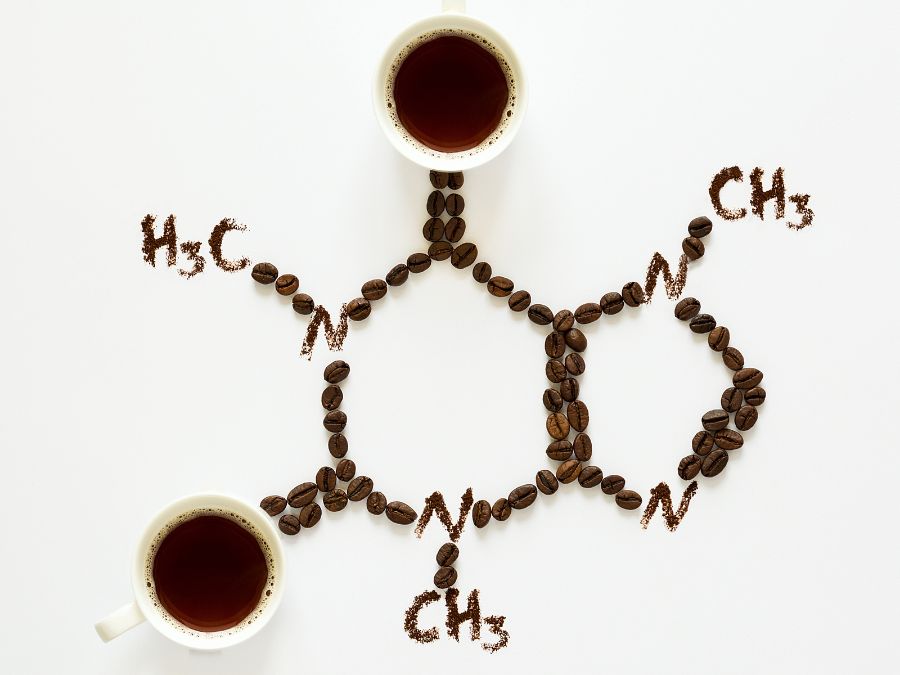
Effects of Caffeine and Other Ingredients on the Body
Energy drinks are marketed as providing a quick boost of energy thanks to their high caffeine content. While caffeine can indeed increase alertness and focus for short periods of time, it can also lead to negative side effects like jitters and anxiety.
The other ingredients commonly found in energy drinks may also contribute to these negative effects. For example, taurine has been shown to increase heart rate and blood pressure when consumed in large amounts.
Additionally, the high sugar content in many energy drinks can lead to a crash after the initial energy boost wears off. This can leave individuals feeling even more fatigued than before consuming the drink.
Health Risks Associated with Consuming Energy Drinks
While energy drinks may provide a quick pick-me-up, they also come with a number of health risks. Consuming too much caffeine can lead to heart palpitations, high blood pressure, and even cardiac arrest in severe cases.
The high sugar content in many energy drinks can also contribute to obesity and type 2 diabetes when consumed regularly over time. Furthermore, some studies have suggested that energy drinks may have negative effects on mental health.
One study found that consumption of energy drinks was associated with an increased risk of depression and anxiety in young adults. Overall, it is important to be mindful of the potential risks associated with consuming energy drinks and to consume them in moderation.

Caffeine Content Comparison
When it comes to caffeine content, coffee and energy drinks are not created equal. A typical cup of coffee contains around 95 milligrams of caffeine, while energy drinks can range from 50 to 300 milligrams per serving.
The amount of caffeine in an energy drink can vary greatly depending on the brand and type of drink. Some brands even offer “extra strength” or “ultra” versions with even higher caffeine levels.
It’s important to note that while energy drinks may contain more caffeine than coffee, they often contain other stimulants such as guarana and taurine which can intensify the effects of caffeine on the body. This can lead to a higher risk for negative side effects such as jitters, anxiety, and trouble sleeping.
Short-term Effects on Alertness, Focus, and Mood
Both coffee and energy drinks are known for their ability to provide a quick boost in alertness, focus, and mood thanks to their high caffeine content. However, the way they affect individuals can vary greatly depending on factors such as tolerance levels and personal preferences.
Coffee is able to provide a more gradual increase in energy due to its slower absorption rate into the bloodstream. This slower release of caffeine provides a steady stream of stimulation that lasts longer than an energy drink’s quick burst.
Energy drinks tend to provide an initial surge in energy but may lead to a crash later on due to the sudden drop-off in stimulation. In terms of mood enhancement, some studies have shown that coffee consumption may be associated with lower rates of depression while excessive consumption of energy drinks has been linked with increased anxiety levels.
Long-term Effects on Overall Health
While both coffee and energy drinks may offer short-term benefits in terms of alertness and focus, it’s important to consider their long-term effects on overall health. Coffee has been linked with a variety of health benefits, such as reduced risk of type 2 diabetes, liver disease, and some types of cancer.
However, consuming coffee in excess can lead to negative side effects such as increased heart rate, high blood pressure, and digestive issues. Energy drinks have come under scrutiny for their potential negative impact on health.
Excessive consumption of energy drinks has been linked with an increased risk for heart problems, kidney damage, and even death in rare cases. Additionally, the high sugar content found in many energy drinks can lead to weight gain and other health issues.
Overall, while both coffee and energy drinks can provide a boost of caffeine when needed, it’s important to consider individual needs and preferences when deciding which to consume. Moderation is key when it comes to any form of caffeine consumption.
Conclusion
After examining the effects and benefits of both coffee and energy drinks, it’s clear that there are pros and cons to each. Coffee has been around for centuries, and its long history includes many health advantages, such as improving cognitive function, reducing the risk of certain cancers and diseases, and boosting metabolism.
Energy drinks, on the other hand, are a relatively new phenomenon but have gained popularity due to their quick-fix nature. While both options provide a boost in caffeine levels for increased alertness and focus, coffee is often seen as a healthier choice due to its natural ingredients.
Energy drinks contain additives like artificial sweeteners that can lead to negative health consequences over time. Additionally, consuming too many energy drinks can cause serious side effects like high blood pressure or heart palpitations.
Ultimately, deciding whether to choose coffee or an energy drink comes down to individual needs/preferences. Some may prefer the taste or convenience of energy drinks while others enjoy the ritual aspect of brewing coffee.
Additionally, some people may need more caffeine than others based on their daily routines or specific job requirements. Both coffee and energy drinks have their place in modern society depending on the individual circumstances.
However, it’s important to consider not only immediate benefits but also long-term health implications when making a decision about what to consume regularly. A balanced approach is always best for overall wellness.

